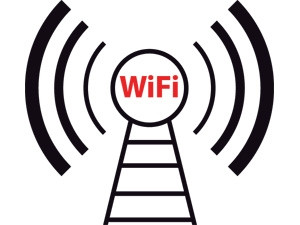
South African telecoms operators should favour investments in WiFi over high-speed packet access (HSPA) and long-term evolution (LTE) technologies if they want to reduce costs and increase network traffic.
So said Irfan Verjee, senior manager for emerging markets theatre for Africa and the Middle East at Cisco Consulting Services, during the Cisco Mobile Executive Briefing yesterday in Johannesburg.
According to Cisco, WiFi offload is a cost-effective alternative to complement 3G, LTE and HSPA networks. "The world is going mobile, and SA is no exception," said Verjee. "The Cisco Visual Networking Index Forecast (2012-2017) projects that South Africa's Internet protocol (IP) traffic will quadruple between 2012 and 2017 at a compound annual growth rate of 31%."
He added that SA's IP traffic (fixed and mobile) is expected to reach an annual run rate of 6.1 exabytes - almost 6.55 billion gigabytes per year - by 2017. According to the report, this growth threatens to overload the capacity of regional mobile operators, who may be struggling to ensure availability of HSPA and LTE spectrum.
"WiFi could hold the solution, transforming wireless Internet access by offering higher speeds, improved security, and more availability on almost any connected device," Verjee explained. Globally, he added, mobile operators are expected to drive WiFi growth through accelerated technology adoption. The report also highlights that "mobile data offload" will enable mobile operators to maximise the benefits of WiFi through cost savings, revenue generation and improved services.
Verjee believes that WiFi is a viable alternative for serving mobile broadband users in crowded locations such as shopping malls, where spectrum availability for HSPA and LTE mobile access networks is limited. In addition, mobile data offload will give operators the opportunity to reduce data costs, allowing the service providers to accelerate adoption and increase market share.
Cisco calculated the cost reductions operators can expect between 2013 and 2017 under four offloading schemes. The calculations demonstrated significantly greater savings as the percentage of mobile data offload increased. According to the company, this model can help mobile operators in SA reduce HSPA and LTE infrastructure costs by roughly 27%, which equates to $972 million.
Cisco cautions, however, that offloading data traffic to WiFi requires significant investment. Based on its analysis, Cisco determined that South African mobile operators would have to invest $108 million between 2013 and 2017 to provide WiFi coverage to 564 buildings with total indoor space of 2.4 square kilometres and a total outdoor space of 25.5 square kilometres for busy locations across Johannesburg, Cape Town, Durban, Germiston, Pretoria, Port Elizabeth, East London and Bloemfontein.
Of this $108 million investment, 20% would be allocated to capex and 80% to opex. Costs will be lower if mobile data traffic offload rates are reduced.
"We have invested considerable time and resources to identify the cost and revenue implications for mobile operators in South Africa," Verjee said. "From a cost perspective, mobile operators need to embrace WiFi to complement and reduce the load on HSPA and LTE spectrum."
Peter Ford, director of Cisco Consulting Services, SP Practice for EMEAR, said that as demand for mobile devices and network connectivity continues to grow, cost effective WiFi access will be critical for meeting the needs of mobility-enabled consumers in SA.
"Service providers are in an enviable position of being able to successfully provide an enhanced experience for their customers through transforming wireless Internet access and offering higher speeds, robust security, and more availability on almost any connected device."
According to Ford, one of the mandates of the South African government is to provide its citizens with universal access and connectivity.
"The significant increase of mobile devices coupled with the seemingly insatiable demand for bandwidth creates an opportunity for service providers in the region to help deliver greater anytime, anywhere accessibility. With more and more people, things, processes and data being connected in the Internet of Everything, the intelligent network and the service providers who adapt and enhance their offerings them are more relevant than ever."
Share